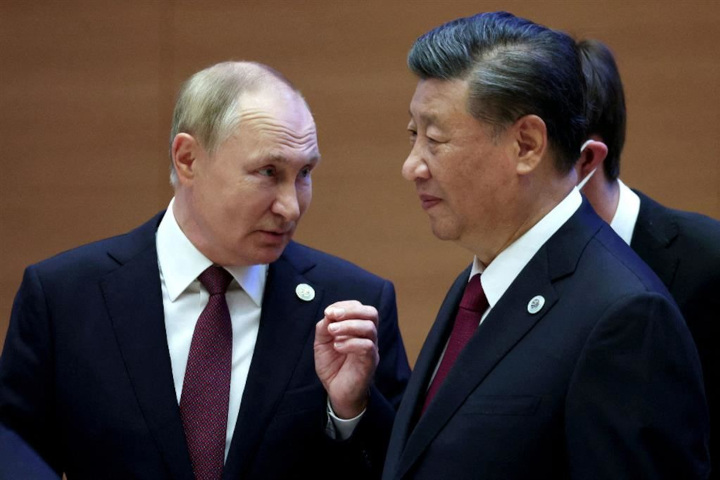
As Russian failures on the Ukrainian battleground emerge more starkly by the day, so former successes of Russian propaganda in the West become more naked and are being exposed daily. China’s TikTok, whose CEO was recently grilled at a U.S. Congressional hearing, apparently is not faring much better. Still, perhaps we must step back to gain some perspective on this.
According to some Cold War stories, perhaps America’s significant blow to the renewed ambitions of Soviet politics, galvanized by the students’ protests in America and Europe after the 1960s, was favoring a strategy of chaos. It moved the rebellious proto-revolutionaries in the West to compete and rebel against each other.
Another element then was undermining the leftist high discourse. The systematic penetration of derision, levity, astrologers, beauty counselors, fashion shows, and makeup artists was a mine under the feet of leftist ideology’s high and noble discourse.
Putin’s systemic weakness
In the last ten years in the West, Russian President Vladimir Putin has possibly used American lessons against America. He supported the left as pro-communist and backed the right as a champion of the defenders of betrayed traditional values. He turned everything against everyone through the easy and cheap new tool of the internet.
So, with little money and even less effort, he has turned the West against itself, just as the rebels of the 1970s were fighting each other rather than against the system.
There is, however, a systemic weakness in the current Putinian approach. In the effort against the rebels of the 1970s, America and the West saved and preserved a high and different discourse of culture and great political direction. In Italy, for example, this meant making fun of the communist solons, but remaining pious and devout about the church and the values of freedom.
The Putinian attempt, on the other hand, does not spare anything.
On the contrary, it must stir up everything and bring total chaos. Preserving a core of solid values in the 1970s allowed the Western system to survive and strengthen after the storm. The chaos brought by Putin does not spare anything. Can it succeed?
It could only if Russian society and culture could survive and thrive against Western chaos. Here there are several problems. The West is accustomed to chaos and also to governing and directing it. Moreover, once the fire of chaos is lit, it is difficult to confine it.
The Western chaos of the 1970s, designed for Europe, also spread to the Soviet empire, which was perhaps not initially planned.
Uncertainty
Today, will the cacophony of voices from America and Europe spread to the rest of the world, including Russia and China? In theory, information barriers should be protective; in reality, they are porous by necessity, so external chaos reaches even within these more closed countries.
The effects, however, that even small traces of chaos can create in environments unaccustomed to chaos are far more critical than chaos in open environments accustomed to dominating and managing it.
Plus, the chaos of external origin, recognized as such, can be an element of alarm and call to arms for free countries where otherwise chaos would be usual. In other words: external chaos can be, as it seems to be becoming, the reason why a society such as the American one decides to coordinate and bring its new cultural order where there was little or none before.
In contrast, rebound chaos arriving in countries such as China, Russia, or Iran can be difficult to deal with since the societies are already rigid. Further stiffening rather than hindering the spread of chaos might facilitate its entry and circulation.
The net result of all this is still uncertain. But the American political and cultural offensive against Chinese TikTok, accused of scattering negative values in America and counter-spreading positive values in China, is perhaps the tip of the iceberg.
Soft Wars
All these strategies maybe can be labeled «soft wars».
When a country chooses to use the various strategies of soft war against the enemy without fully calculating the backfire, its political system’s structural weaknesses can be fatal.
In the same way, the offensive of Russian trolls now repurposing the old Soviet disinformation in electronic form seems less successful because it is being discovered everywhere and, thus, even in the face of political defeat in Ukraine, has less impact in the West and the world.
The real challenge, then, is that political-economic systems are more or less efficient than one another. In this sense, the rock-bottom of the current political competition seems to be similar to what was happening around the Yellow River basin in China between the seventh and third centuries B.C.
Then, in essence, the Qin kingdom could win because it had organized a more efficient political system than its competitors in the region. That system was the most rigorous bureaucratic organization in the area.
Today, what is the most efficient political system in the world? Perhaps not simply the one that sacrifices everything for the bureaucratic organization but one that mixes efficient bureaucratic organization with the management and exploitation of the chaos generated and facilitated by the free market.
Better than a stiff bureaucratic organization, the free market also creates more economic resources to be directed elsewhere.
What countries could be winning, then? Those who don’t refuse chaos but are better at managing it.






Sr Sisci has it exactly right in this article. This is fine thinking and analysis.
This is what I have been viewing during my 52 years living in Washington DC
Molto interessante, bravo Francesco